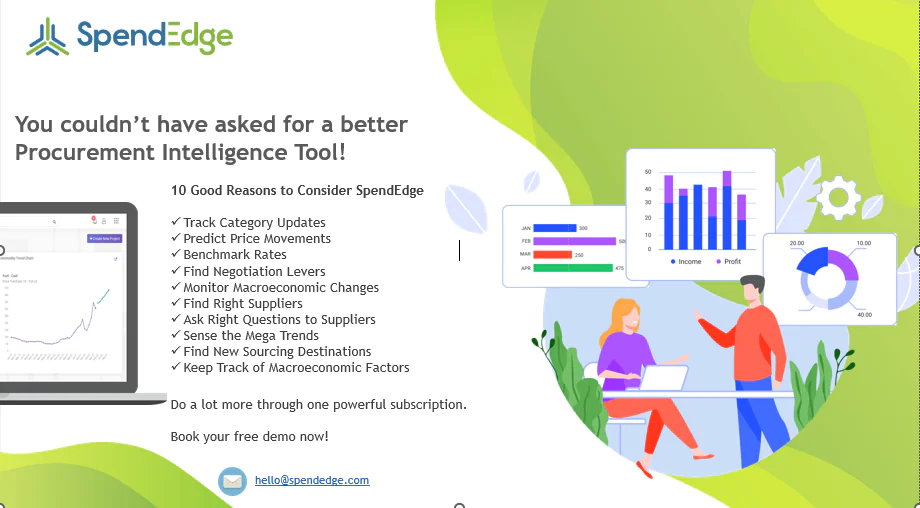Driving cost efficiency in non-product expenses is crucial for food and beverage (F&B) and consumer packaged goods (CPG) companies. With the global landscape becoming increasingly complex, especially post-COVID-19, decision-makers in the F&B sector must navigate numerous hurdles, including transportation complexities, supplier compliance issues, cross-border tariffs, and inflation. This article explores effective strategies for managing these challenges and enhancing operational efficiency.
Transportation Complexities Post-COVID-19
The transportation sector has faced significant disruptions due to the COVID-19 pandemic, leading to increased logistical costs and operational inefficiencies. National lockdowns and travel limitations resulted in labour shortages and delays in shipping. While container shortages and route disruptions have been largely resolved, issues linger, causing shortages in certain routes and higher costs. For UK-based businesses, Brexit has further complicated the situation with new customs requirements and trade regulations affecting the smooth flow of goods.
To address these transportation complexities, decision-makers in the F&B industry must implement automated processes and leverage technology solutions. For instance, cloud-based EDI (Electronic Data Interchange) solutions like Transalis can streamline communication with international suppliers and reduce hidden costs associated with legacy EDI systems. Automated processes enhance visibility across the supply chain, enabling better management of logistical costs and improving overall business performance. Clubbing transportation services to achieve economies of scale can also help reduce costs and increase efficiency.
Supplier Compliance and Cross-Border Tariffs
Supplier compliance issues and cross-border tariffs pose significant challenges to the food production industry. Ensuring that international suppliers adhere to stringent quality standards and trade regulations is crucial to maintaining the integrity of the supply chain. Post-Brexit, UK producers must navigate new customs requirements and tariffs when dealing with European retailers, adding another layer of complexity to the procurement process. Furthermore, EU regulations on sourcing forestry and agricultural products have tightened, affecting the ability to source certain ingredients from specific countries.
To mitigate these challenges, F&B brands should invest in robust auditing procedures and compliance monitoring. This can be achieved through scalable SaaS (Software as a Service) providers that offer end-to-end onboarding and data management compliance. By ensuring that all suppliers meet the necessary standards and regulations, companies can avoid costly disruptions and maintain the quality of their ingredients and raw materials. Ethical sourcing is also critical, as labour exploitation in some regions can impact a company’s PR high ground and ethical sourcing goals. Investing in suppliers’ operations to improve their compliance can lead to long-term cost savings and stronger supplier relationships.
Impact of Inflation and Food Costs
Inflation has a direct impact on food costs and product pricing in the F&B sector. Rising prices of raw materials, such as wheat, oil, and gas, exacerbated by the Russia-Ukraine conflict, have increased processing costs and shelf prices of kitchen cupboard staples like ketchup and baked beans. Food inflation affects manufacturers, leading to product shortages and potential disputes over product pricing.
To combat the financial implications of inflation, F&B companies should adopt innovative cost-cutting strategies and explore alternative sourcing options. Leveraging local suppliers can reduce transportation costs and mitigate the impact of international supply chain disruptions. Additionally, digital transformation initiatives can optimize in-house operations, further driving down overhead costs and enhancing operational efficiency. Negotiating for value-added services rather than direct discounts can also help manage costs effectively.
Addressing Labour Shortages and Manpower Issues
Labour shortages have been exacerbated by the pandemic and Brexit, particularly affecting the UK workforce. The food and beverage industry has experienced a high vacancy rate, with a significant decline in the availability of EU citizens willing to work in the UK. This shortage of manpower has led to increased wage demands and operational inefficiencies, as companies struggle to maintain production levels.
To address these labour challenges, F&B companies should invest in automated processes and digital solutions that reduce dependency on manual labour. Implementing advanced technology features such as AI-driven inventory management and robotic process automation can enhance operational efficiency and reduce processing costs. Companies should also focus on improving working conditions and offering competitive wages to attract and retain skilled workers. Investing in training and development programs can help build a more resilient workforce.
Managing Energy Costs and Overhead Expenses
Energy costs constitute a significant portion of overhead expenses in the food production industry. Rising prices of gas and oil have increased the cost implications for manufacturers, affecting the overall cost structure. Managing these expenses is crucial for maintaining profitability and competitiveness in the market.
F&B brands can drive cost efficiency by adopting energy-efficient technologies and practices. Investing in renewable energy sources and optimizing energy usage through smart meters and automated systems can significantly reduce energy costs. Additionally, regular maintenance and auditing of equipment can prevent breakdowns and ensure optimal functionality, further driving down overhead expenses. Negotiating energy contracts and exploring bulk purchasing agreements can also help manage energy costs effectively.
Marketing and Sales Expense Management
Marketing and sales expenses can significantly impact the overall cost structure of F&B companies. Effective management of these expenses is essential for maintaining profitability and ensuring that marketing campaigns yield the desired results. Post-COVID-19, digital marketing has become increasingly important, and companies must adapt to this shift.
To drive cost efficiency in marketing and sales, F&B companies should leverage digital marketing tools and platforms that offer targeted advertising and measurable results. Automated marketing solutions can streamline campaign management and reduce labour costs associated with traditional marketing methods. Additionally, investing in data analytics can provide valuable insights into consumer behaviour, allowing companies to optimize their marketing strategies and improve return on investment. Co-developing marketing campaigns with suppliers can also lead to shared benefits and reduced costs.
Administrative and Other Non-Product Expenses
Administrative expenses, including salaries, office supplies, and utility bills, can add up quickly and affect the overall profitability of F&B companies. Effective management of these expenses requires a strategic approach that focuses on cost-cutting without compromising operational efficiency.
One way to reduce administrative costs is by implementing cloud-based solutions that streamline various business processes. For example, cloud-based HR and payroll systems can automate employee management and reduce the need for manual data entry, saving time and reducing errors. Additionally, remote work policies can help reduce office space requirements and associated costs. Clubbing certain services such as IT support and facility management can achieve economies of scale and reduce overall expenses.
Another area where cost savings can be achieved is in the procurement of office supplies and services. By negotiating better terms with suppliers and leveraging bulk purchasing agreements, companies can reduce the cost of essential items and services. Regular auditing of expenses can also identify areas where further savings can be made, ensuring that all expenditures are justified and necessary.
Managing Operational Efficiency and Maintenance Costs
Maintaining operational efficiency is crucial for F&B companies to remain competitive and profitable. Regular maintenance of equipment and facilities can prevent costly breakdowns and ensure that production processes run smoothly. However, maintenance costs can add up, and it is important to manage these expenses effectively.
F&B companies should implement preventive maintenance programs that focus on regular inspections and timely repairs. This can help identify potential issues before they become major problems, reducing downtime and associated costs. Investing in modern equipment with advanced features can also improve operational efficiency and reduce maintenance requirements. Leveraging technology for equipment monitoring and maintenance scheduling can further enhance efficiency. Automated maintenance management systems can track equipment performance, schedule maintenance tasks, and provide real-time alerts for potential issues. This ensures that maintenance activities are carried out promptly and efficiently, minimizing disruptions and costs.
Leveraging Digital Transformation for Cost Efficiency
Digital transformation is a key driver of cost efficiency in the F&B industry. By leveraging advanced tech solutions, companies can optimize their operations, reduce overhead costs, and enhance overall business performance. Cloud-based EDI solutions, automated processes, and AI-driven analytics are some of the features that can transform the way F&B companies manage their supply chains and operations.
Investing in digital transformation initiatives can also improve data management compliance and provide valuable insights into consumer behaviour and market trends. This enables decision-makers to make informed choices and develop innovative business decisioning strategies that drive growth and profitability.
Conclusion
Driving cost efficiency in non-product expenses is essential for F&B and CPG companies to remain competitive in an increasingly complex global market. By addressing transportation complexities, supplier compliance issues, inflation, and labour shortages, companies can enhance their operational efficiency and reduce overhead costs. Leveraging digital transformation and advanced tech solutions can further optimize supply chain management and improve overall business performance.
In summary, F&B brands must adopt a holistic approach to cost efficiency, focusing on both short-term gains and long-term sustainability. By implementing innovative cost-cutting strategies, enhancing business agility, and leveraging digital solutions, companies can navigate the challenges of the modern market and achieve their strategic objectives.





